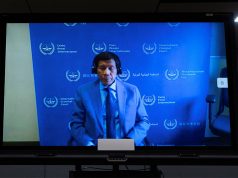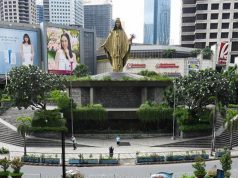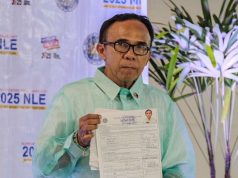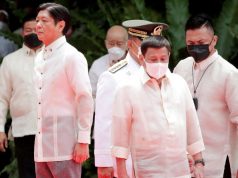
(First published on June 18, 2018 at 4:35 p.m.; Updated) Ilocos Norte Governor Imee Marcos proudly proclaimed that her dad is her hero for Father’s Day, prompting an immediate backlash against the former strongman Ferdinand Marcos.
Father’s Day was celebrated in June 17 but she released her tweet the day before. She has since deleted it but the original message was, “My dad is my hero. Happy Father’s Day to all!”
May Dad is my hero. Happy Father's Day to all!
— Imee Marcos (@ManangImee) June 17, 2018
Some users were able to retweet and take a screenshot of it before its deletion.
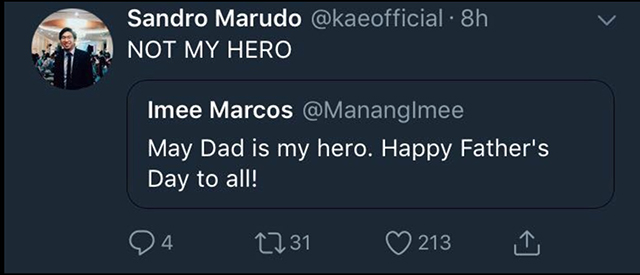
Imee’s message was intended to celebrate the event but some people were not too keen on celebrating with her.
Critics cited that her father, Ferdinand Marcos, was one of the reasons why there are Filipinos who couldn’t celebrate Father’s Day any longer.
Sabihin mo yan sa libo libong pamilya na di nagcecelebrate ng father’s day ngayon dahil sa tatay mo
— Millennial Doktora ??⚕️ (@MillennialMD) June 17, 2018
Maraming ama ang hanggang ngayo'y hindi pa rin nahahanap at hindi pa rin nabibigyan ng hustisya dahil sa rehimen ng tatay mo.
Ipapaalala ko lang sayo kasi baka bata ka pa nung mga panahong yun.
Also hindi bayani ang tatay mo.
— Christianne Kelsey Roque – ?️? (@heyooitskelsey) June 17, 2018
balita ko dami pinapatay na tatay nung panahon ng tatay mo
— istarman (@istarmaaan) June 17, 2018
Marcos implemented Martial Law in the country from 1972 to 1981 and it is considered one of the darkest periods in recent Philippine history.
Amnesty International cited that around 3,240 people lost their lives, while about 34,000 were tortured during those years.
The supposed heroism of Marcos
Filipinos were shocked when Marcos was discreetly buried in the “Libingan ng mga Bayani” in November 2016 without media coverage.
Libingan ng mga Bayani is reserved for Filipino soldiers, war veterans, presidents, secretaries of national defense, government dignitaries, national artists and citizens who are considered as martyrs and heroes.
It was created through RA 289 or “An Act Providing for the Construction of National Pantheon for Presidents of the Philippines, National Heroes and Patriots of the Country.”
Government officials, Catholic bishops, activists and students strongly condemned the action, with some of them liking the move to that of a thief in the night.
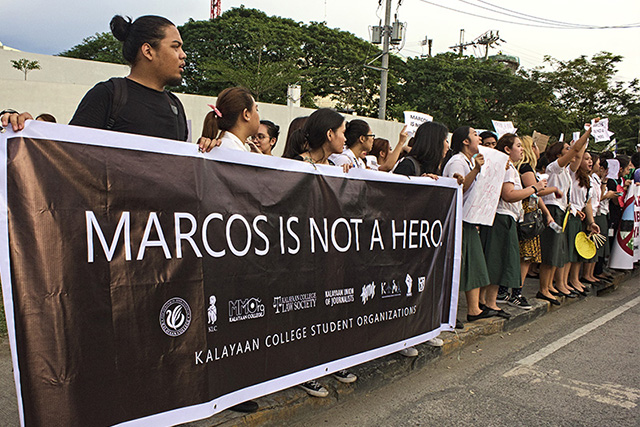
Then-Senate President Franklin Drilon said, “The stealthy and hurried manner by which the Marcos burial was orchestrated is reminiscent of the dark days of martial law. His burial is anything but noble. Even in death, he is a thief.”
Vice President Leni Robredo added in a statement, “Like a thief in the night, the Marcos family deliberately hid the information of burying former president Marcos today from the Filipino people.”
The protests against the burial trended on social media with hashtags such as “#MarcosIsNotAHero” and “#MarcosBurial”.
Marcos to be buried in LNMB, but his family still refuses to account for all injustices commited during the Marcos era. #MarcosIsNotAHero
— Adi Briones (@AdiBriones) August 14, 2016
Ateneo de Naga University students assemble to protest the sudden burial of Marcos at the LNMB. ?✊?#MarcosIsNotAHero pic.twitter.com/WF9yy9qmEf
— Javier Vitug Rugeria (@djairugeria) November 18, 2016
*mic drop#MarcosNoHero #HeroMoMukhaMo #MarcosBurial ctto pic.twitter.com/pOD9wvPcI1
— ‘ (@mykeeabelo) November 25, 2016
However, there were those who supported Marcos’ hero status, saying that he has the right to be buried in the Libingan ng mga Bayani following military standards.
Solicitor General Jose Calida said, “Based on military standards, given to a Medal of Valor awardee, former President Marcos fits to the definition of a hero.”
Before his political career, Marcos used to be a soldier who earned a Medal of Valor in 1958. It is the considered the highest medal among the military.
He was part of the Philippine-US resistance against Japanese forces during World War II.
Under Presidential Decree 1687, a Medal of Valor awardee “deserves due recognition from a grateful government and people.” However, the decree was issued by Marcos himself during his term.




